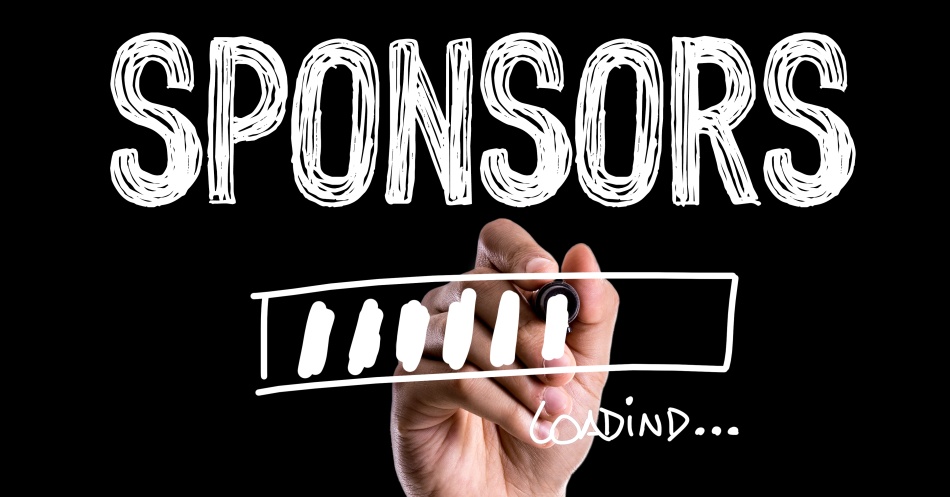Why Use Brand Sponsorship Marketing?

The amount that businesses spend on brand sponsorship continues to increase every year. Research from Statista found that global sponsorship spending increased from $62.7 billion in 2017 to $65.8 billion in 2018. As more companies invest in sponsorships, it’s important to consider how sponsorships can play into increasing brand awareness.
Why?
Because an effective brand sponsorship strategy will make your brand ubiquitous and keep it in your audience’s minds.
What Is Brand Awareness?
Brand awareness is the level of recognition that people have of a particular business, product, or service. With increased brand awareness, more people will become familiar with a brand. If you want people to remember you and keep your brand in their minds long after they’ve encountered your ads, it’s necessary to build brand awareness.
One of the best ways to increase brand awareness is to use brand sponsorship to your advantage. For instance, brands have found success sponsoring Chicagoland radio shows.
What Is Brand Sponsorship?
Brand sponsorship occurs when a company supports a particular event, individual, organization, or activity. You’ve likely encountered many instances of brand sponsorship at your favorite sporting events, music festivals, or on radio shows or podcasts as hosts read various ads.
Take the recent Chicago baseball playoffs. While neither the Cubs nor the White Sox made it past the playoffs, many fans of both teams regularly tuned into their games, including that memorable game between the rival teams in September.
As sports fans across the city rooted for either team, they were exposed to many ads during commercial breaks and in the stadium. Brands like Geico, State Farm, and Corona had plenty of spots throughout the playoffs both on and off the field. Subsequently, they’re forever tied to these events in many fans’ minds.
Beyond sports events, there are effective ways to accomplish brand sponsorships. For instance, sponsorship of a radio show can lead to top-quality endorsements.
Types of Brands
There are several types of brands out there that may benefit from brand sponsorship in different ways. The following are three examples of popular brand types, and how they can use brand sponsorship to boost brand awareness.
Product Brands
These brands are companies that are primarily known for the specific product they produce. For instance, Pepsi is a popular product brand known specifically for soft drinks, and Nike is synonymous with athletic shoes and apparel. Through brand sponsorship, people will come to associate those brands with the events or individuals they sponsor. Product brands can feature popular figures and influencers using their products, which can build some hype around the brand behind them.
Service Brands
Service brands are centered around advertising a service that a company offers. It’s often more challenging to advertise service brands compared to product brands because services aren’t tangible. However, effective brand sponsorship can highlight how the brand values customers and works to provide the best possible services. Endorsements from popular influencers can be especially beneficial for service brands, as trusted individuals with a loyal following can help build trust around services that left them satisfied.
Luxury Brands
These brands promote unbeatable quality that can make their customers feel a sense of superiority when they purchase from them. Because of their exclusivity, they often target specific types of customers, whether those audiences are interested in premium products or services. Brand sponsorship efforts can emphasize the sense of superiority and class that customers may feel when buying from luxury brands. In turn, branding efforts can entice people to become a part of that perceivably elite “club” that the brand promotes.
eCommerce Brands
Unlike many other brands, eCommerce brands normally exist exclusively online. They may offer tangible products or services, while their presence remains intangible without a physical location. One example of a popular eCommerce brand that lives on the internet is Wayfair. Sponsorship efforts may work to highlight the benefits of turning to the brand, whether those benefits include unparalleled online services or highly competitive pricing and convenience.
What Is Brand Sponsorship Marketing?
Brand sponsorship marketing involves the use of various marketing materials to promote a brand through various sponsorship opportunities. From apparel and banners to top-quality video ads and influencer endorsements, there are many ways to go about brand sponsorship marketing.
For example, you could feature large posters with your brand that are highly visible in the background of sporting events. You can also sell merchandise that converts your brands into various products and apparel, essentially turning the people who use them into living ads.
Another great way to engage in brand sponsorship marketing is to seek endorsements from influencers, including social media influencers,
radio personalities, and podcast hosts. These individuals can take some time during their broadcasts to promote your products or services. This can be invaluable when it comes to gaining the trust and attention of their audiences, as people actively listen to and trust these influencers.
Effective brand sponsorship campaigns can lend ubiquity to your brands as they appear just about anywhere at any time. As your brand becomes a part of people’s favorite events, activities, and people, they’ll come to associate you favorably with them. In the end, they’re much more likely to remember and engage with your brand.
Use Brand Sponsorship to Significantly Increase Brand Awareness
If your goal is to increase brand awareness and make sure your brand stands apart from competitors, brand sponsorship can be the key to success. With a full-fledged campaign that includes posters, influencer endorsements, and other forms of sponsorship, you’ll have the chance to ensure your brand remains in the minds of your prospects and customers.
Share This
Subscribe
Stay on top of industry news and trends.
